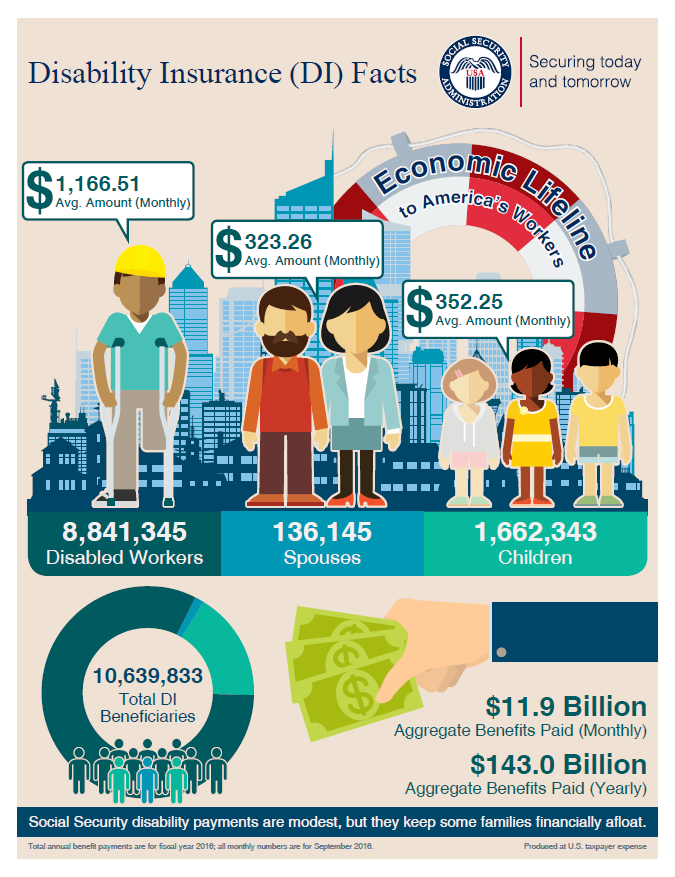Legal Insights Hub
Your go-to source for the latest in legal news and information.
Disability Insurance: Because Life Doesn’t Always Play Fair
Protect your future! Discover why disability insurance is a must-have for navigating life's unexpected twists and turns.
Understanding Disability Insurance: What You Need to Know
Understanding disability insurance is crucial for protecting your income in the event that you become unable to work due to a serious illness or injury. This type of insurance provides you with a portion of your income to help cover essential expenses, such as mortgage payments, rent, and daily living costs. There are two main types of disability insurance: short-term and long-term. Short-term disability insurance typically covers you for a few months, while long-term disability insurance can last for years or even until retirement, depending on your policy.
When considering a disability insurance policy, it’s important to understand key terms, such as elimination period, benefit period, and monthly benefit amount. The elimination period is the duration you need to wait after becoming disabled before receiving benefits, while the benefit period defines how long you will receive payments. Additionally, reviewing your policy for any exclusions or limitations is essential to ensure you have adequate coverage tailored to your needs. To summarize, having a comprehensive understanding of disability insurance can provide peace of mind and financial security during challenging times.

Top 5 Myths About Disability Insurance Debunked
Disability insurance is often surrounded by a cloud of misconceptions that can deter individuals from securing essential coverage. One common myth is that only physically demanding jobs require disability insurance. In reality, anyone can face unexpected health challenges, regardless of their occupation. An estimated 1 in 4 20-year-olds will experience a disability before retirement age, emphasizing the need for disability coverage across all professions. Furthermore, many believe that disability insurance is only necessary for long-term disabilities, but short-term illnesses and accidents can also lead to lost income, highlighting the importance of comprehensive coverage.
Another frequent misconception is that disability insurance is too expensive. While certain policies may seem costly, various options exist, including group plans offered by employers, which can make premiums more affordable. Additionally, many individuals mistakenly believe that disability benefits will cover their entire income; however, most policies typically replace about 60-70% of your income, which is designed to ensure that you have some financial responsibility during recovery. It’s crucial to understand these myths to make informed decisions about disability insurance, ensuring you are adequately protected in case of unforeseen circumstances.
Do You Really Need Disability Insurance? 5 Questions to Consider
When contemplating whether you need disability insurance, it's essential to ask yourself some key questions. First, consider the likelihood of becoming disabled at some point in your life. According to statistics, one in four 20-year-olds will experience a disability before reaching retirement age. This stark reality highlights the importance of evaluating your current financial situation and the potential impact a disability could have on your ability to earn income. Furthermore, think about your current savings and any other safety nets you have in place — would they be sufficient to cover your expenses if you were unable to work?
Another crucial question to ponder is your occupation's risk level. Some jobs inherently come with higher risks of injury or illness, making disability insurance even more critical. Additionally, assess whether you have access to employer-provided disability coverage and if it offers enough protection to meet your needs. Reflecting on these questions will help solidify your understanding of the necessity of disability insurance and guide you in making an informed decision about your financial future.